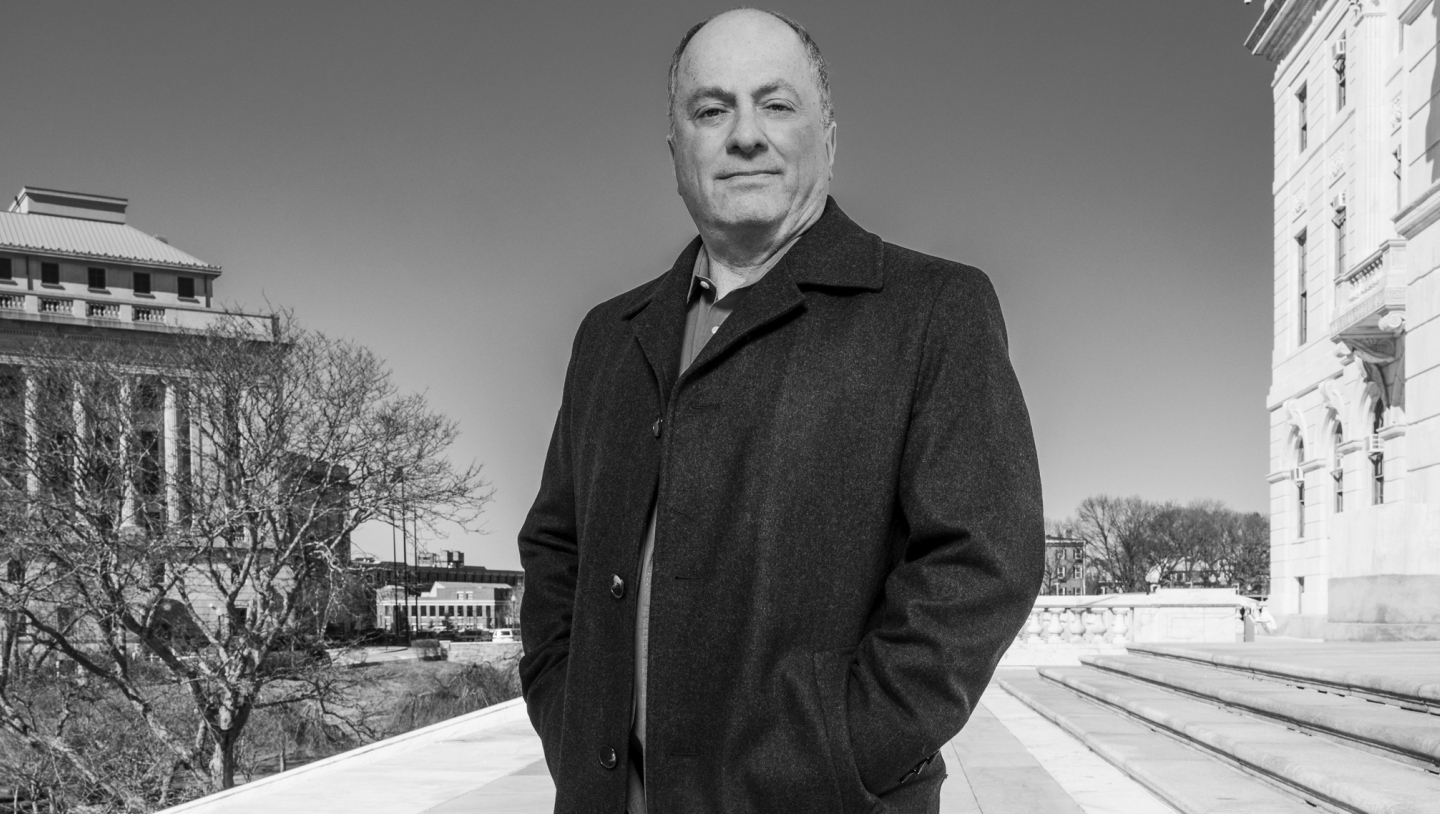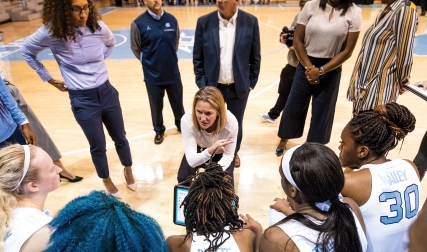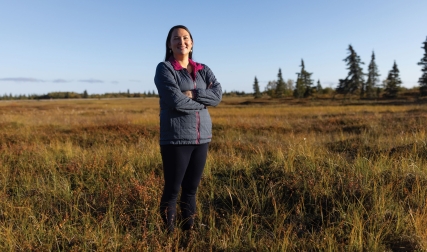On November 4, 2020—one day after the election—a lawyer for Donald Trump contacted Block, head of Simpatico Software Systems in Rhode Island and an expert in voter data analytics and election integrity, to investigate cases of voter fraud. For the next five weeks, Block’s team dug into the data and raced around the clock, a story the former computer science major recounts in his lively new book, Disproven. In it he also explores what’s wrong with U.S. elections and how the states’ inconsistent mishmash of laws renders elections “insane.” A registered Republican, Block is a two-time Rhode Island gubernatorial candidate—he ran once as a Republican and once as a member of a moderate party he founded. (On his website he writes of losing: “Voter fraud was not to blame, and it was not a stolen election.”) DAM caught up with him in mid-March.
When Trump’s lawyer called, what was your immediate reaction?
My first thought was, “How did this guy get my number?”
What was it like to deal with team Trump?
There were team members who were part of the professional staff employed by the campaign and did their due diligence. Those are the people I reported to. Then there are the more commonly known Rudy Giuliani, Sidney Powell, and John Eastman, who had no interest in doing due diligence, who were at war with the people I interacted with, and with whom I had no direct interactions.
But you did encounter Eastman, the lawyer who spoke at the January 6 Trump rally and had argued that Mike Pence should delay certification of the 2020 election?
Yes, once, very memorably. One of the first claims of fraud they asked me to evaluate was of more than 16,000 duplicate votes cast in Nevada. I was able to prove that their finding was about as wrong as it could have been. When I met Eastman, he was very agitated and wanted to know, in an aggressive way, why the Nevada data was bad.
Did he contest your findings?
He accepted them, and it helped end a lawsuit based on that data.
What’s your final analysis of the 2020 election?
The statement that there was no fraud is false. But the statement that there was enough provable fraud to have changed the election result is manifestly false.
Please explain what you found in Wisconsin.
Wisconsin was truly insane. Bonkers. The claim was that nearly 740,000 duplicate votes were cast. A group of volunteers got excited and wanted the Department of Justice to come in and, I believe, start arresting people. They went to the manager of a Trump golf course, who delivered the finding to Eric Trump, who brought it to the Oval Office, which then had it delivered to Alex Cannon, the lawyer I reported to, who handed it to me and practically dared me: “Tell me why this is wrong.” He didn’t think it was.
And you did?
It was wrong because the volunteers missed another 700,000 votes that were cast in person on Election Day. Instead of wondering if their data could possibly be correct, they concluded they had a smoking gun. It was confirmation bias—you grab hold of anything out there that confirms your worldview, and you ignore or write off as false any information that contradicts it.
In Pennsylvania, dead people voted?
Yes. I found a couple of newly registered voters who had been deceased for several years, and some of those voters ended up casting votes. It was obviously fraudulent, and the people behind those votes were convicted of voter fraud. So, it does happen—and it was very easy in Pennsylvania because the state has weaknesses in identifying whether someone is deceased. That’s not a good thing for something as important as our elections.
You also found duplicate votes elsewhere?
Yes. States maintain their own voter rolls, oftentimes in a vacuum without communicating with any other state about who’s registered. So, you may have people who recently moved and have active voter registrations in two states, or they own two homes and were brazen enough to apply for and get a voter registration in two states. We have no formal mechanism in place to identify and prevent this. In the 2016 election there were thousands of duplicate votes cast in places like Florida, where people own second homes.
Can you talk about Benford’s Law—a little-known mathematical observation about the leading digits of numerical data—that was invoked to support challenges to the 2020 election?
I had never heard of Benford’s Law, so I did a crash course with about 30 colleagues and learned that it applies only to large sets of data. It didn’t apply in this case, a mathematical extrapolation involving the populations of different counties. I explained it carefully to the Trump team on the phone. There was a long, uncomfortable silence. Then someone very agitated said, “All right, we’re done here.”
It feels as though Murphy’s Law may be more relevant to this year’s election.
Let’s hope there are many laws that apply. By the way, we haven’t heard the last of Benford’s Law. I have a strong sense it’s going to be brought back again.
How can we fix our elections?
We need to modernize our elections. The conduct by the states yields some uneven and unfair weirdnesses. Congress can’t agree on where to order lunch, but it has to pass some laws to create standards and eliminate some of these ridiculous situations that arise because the states do their own thing.
So, we need more consistency?
We should make voter registration a federalized system, as opposed to one that is run by each state or by counties. One of my favorite lines is “inconsistency is the enemy of integrity.” Imagine this scenario: You vote early in person or by mail, and you die after you cast your vote but before Election Day. Does your vote count? Well, the answer depends on where you live. In about 15 states, the vote counts by law. In a similar number of states, the votes do not count by law—as in Michigan in 2020, when 3,500 early votes cast were canceled. That’s not a small number. In other states, there is no law.
Which states are most problematic?
New York has what I consider the nation’s worst voter data by far. It administers elections on a county level, and each county labels a vote cast differently. You have no way of easily picking out the data. And they’ve made mistakes. One of the counties put in the wrong data. And none of that’s been cleaned up.
What’s the best way to identify voters?
Social Security number. You can’t do it with a name and date of birth, as I painstakingly describe in the book. In New York State in 2020, nearly 2 million votes cast were by voters for whom the state’s voter registration system did not have a Social Security number or a driver’s license. The state cannot uniquely identify those voters, and it can’t identify when those voters are dead. It’s a stunning problem. And by the way, hundreds of votes were cast in New York in 2020 and 2022 by voters whose age was older than 118. Which is not possible.
How did that happen?
It’s not voter fraud. It’s sloppy data.
Which states best handle national elections?
Georgia has incredibly clean data, and Nevada has the country’s cleanest election data—except for their mail ballots, but that’s a different story. The data that tracks how mail ballots are handled from state to state and county to county is a disaster.
Do you expect to be busy again this November?
I believe there’ll be more opportunities to do this work moving ahead, and I welcome it. It’s really important to have honest, unbiased analysis of election data. We have not yet experienced massive, systematized voter fraud. That doesn’t mean that we won’t.




